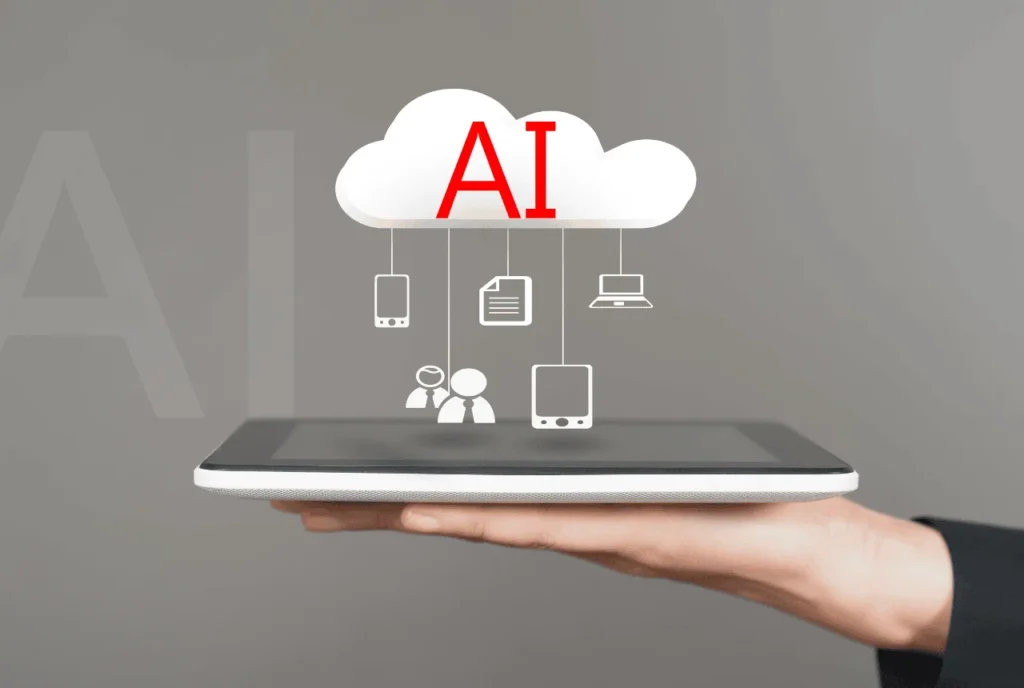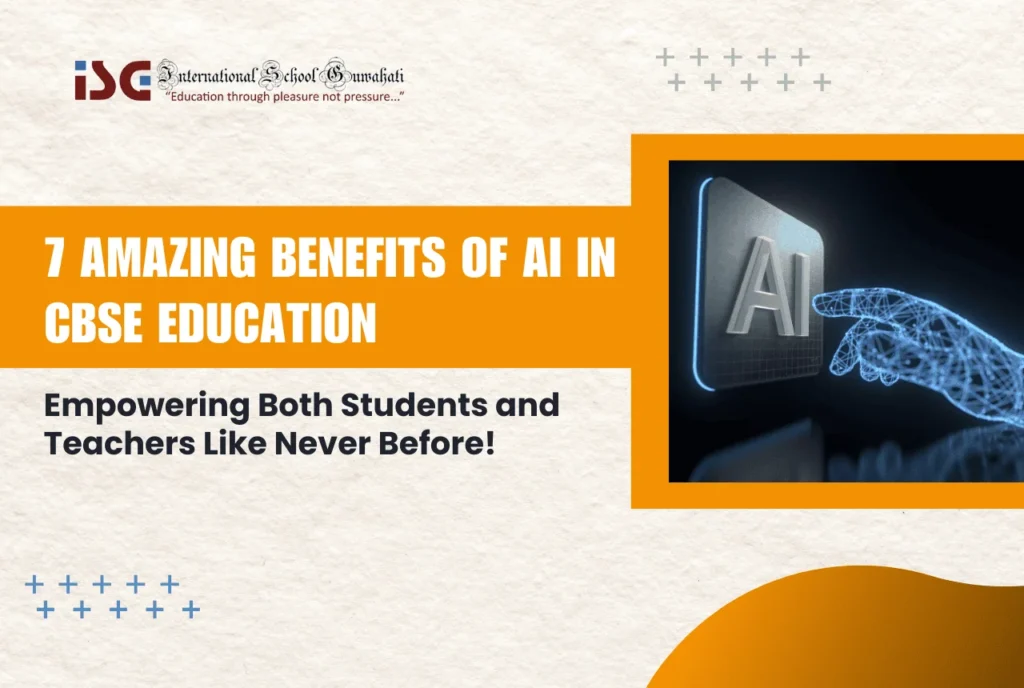Are the students from CBSE ready to live in a world that literally has technology hovering over nearly every aspect of living? The benefits of AI in CBSE education go even more profound than the better learning tools; they represent, in fact, nearly a complete overhaul of the experience itself of learning.
Thus, artificial intelligence may be integrated into the curriculum so that these students are equipped with at least some of the desired skills, such as thinking critically, solving problems, and adjusting to flexibility while training students in an education pattern directly answering the needs of a technology-driven job market.
AI could produce an individualized learning environment, which would meet a student’s unique learning requirement, provide content associated with immersive engagement, and offer real-time feedback which are guiding steps to better learning and individualization of learning.
Artificial Intelligence sets off a powerful trend and places the future of education in India on the right footing, preparing students for the world as it is and giving them the leadership position to prepare for the world as it will be.
What are the Benefits of AI in CBSE Education?

Introducing AI in CBSE education has had various advantages that have resulted in positive changes in student outcomes. Some of them include:
- Personalized Learning Experience: AI makes the educational content geared towards the individual needs of students by adjusting the pace and style of learning.
- Increased Engagement and Motivation: Interactive AI tools, including gamification, help the students explore deeper with greater enthusiasm into the learning process.
- Intelligent Tutoring Systems: It offers one-to-one support with instant feedback and enables better understanding by the learners.
- AI-led Data-Driven Insights for Instructors: AI uses performance data that would enable instructors to know when to intervene and pull students back on track.
- Administrative Efficiency: Administrative paperwork taken away from teachers’ workspaces frees them up to concentrate on teaching tasks rather than trying to deal with reams of paper.
- Accessibility and Inclusivity: The various AI tools help in attending diverse needs of learners, making education more inclusive.
- Preparation for Future Careers: This is through exposing students to the appropriate AI technologies, and relevant skills in the future workforce.
1. Personalized Learning Experiences

AI takes the concept of personalized learning to exceptional heights since the content a student learns can be wrought to perfectly suit the needs of that learner. Through adaptive learning technologies, AI looks at data such as how a student performs, learning style, and preference to change the route of learning.
This simply means that Coursera, now employs more complex algorithms that vary the complexity and pace of the lesson due to individual behavior and progress. Mathspace further contains video modules and interactive activities along with AI-based recommendations to achieve fully personalized learning.
This personalized approach enables the student to concentrate more on the subject matter as one may learn at his or her pace and focus on weak areas. If you didn’t realize till now, AI in CBSE education is both engaging and learning. Students are, therefore more motivated and likely to produce better academic results with personalized learning being an important advantage of AI in education
2. Enhanced Engagement and Motivation

AI technologies have transformed how students interact, they bring learning environments that can be interactive and even gamified. These technologies blend features like quizzes and challenges with a reward system in order to make learning more fun and interesting for the students. Prodigy and DreamBox Learning are examples of them that provide a game-like interface to encourage students to actively engage in learning by responding positively to activities.
AI-driven tools revolutionize a traditional lesson approach to inspire and engage students further with subjects. Real-time feedback is guaranteed to keep the engagement and learning; students’ progress is eminently traceable and adjustable. Gamification of learning will make it fun with deep understanding and increase retention and academic excellence
3. Intelligent Tutoring Systems

ITS demonstrates how AI could provide students with personalized one-to-one support. Individual responses of students and the learning pattern are analyzed by these systems in order to have responses and guidance that are tailored. For instance, Khan Academy uses ITS to identify knowledge gaps and suggest specific exercises or resources needed for mastery.
The benefits of AI in CBSE education are fundamental; they give immediate feedback as soon as the student requires it, allowing them to self-correct errors without instructor intervention. Instant feedback will usually facilitate a more personalized relationship between a tutor, in this case, an intelligent tutoring system, and a learner. The capacity for learning at one’s own pace leads to directed support in the areas in which students are less confident, immensely improving their understanding and retention of a subject.
4. Data-Driven Insights for Educators

The benefits of AI in CBSE education is its ability to analyze vast amounts of data provides educators with invaluable insights into student performance. By monitoring interactions with learning materials such as time spent on tasks and the accuracy of responses, AI systems can identify trends and areas where students struggle. This data-driven approach allows teachers to tailor their strategies effectively.
For example, if an AI platform detects that a group of students is consistently struggling with a particular concept in mathematics, educators can intervene early with targeted support or additional resources. This proactive approach not only enhances academic performance but also reduces dropout rates by ensuring that at-risk students receive timely assistance. Thus, leveraging data analytics through AI is essential for fostering a responsive educational environment that meets the needs of all learners.
5. Administrative Efficiency

AI plays an important role in increasing the efficiency of administration within a learning environment by freeing out so much time and resources through the automation of mundane work. Grading assignments and tests are one good example where AI machines can be designed to quickly go through student assignments, thereby giving instant feedback. Gradescope is one such platform developed through machine learning algorithms that not only grade teachers but save them so many hours from such mundane work.
AI also includes the optimization of scheduling procedures, so classes are sequenced and organized according to student needs and availability. The inferences of this data can therefore be used by AI systems to provide optimal timetabling and optimize resource usage. This is made possible by freeing up educators from doing intensely burdensome administrative work so that they spend more time providing instruction and interacting with their students; hence improving the overall educational experience to allow teachers to better deliver quality education.
6. Accessibility and Inclusivity

The benefits of AI in CBSE education tools are instrumental in supporting diverse learning needs, making education more accessible and inclusive for all students. For example, language translation applications can assist non-native speakers in understanding course materials, while specialized resources cater to students with disabilities. Tools like Microsoft’s Immersive Reader provide reading assistance through text-to-speech features and customizable text formats, benefiting students with varying literacy levels.
Moreover, AI-driven platforms can adapt content based on individual learning styles, ensuring that all students receive the support they need to succeed. This focus on inclusivity is essential for creating equitable learning environments where every student has the opportunity to thrive. By leveraging AI’s capabilities, educators can better address the unique challenges faced by diverse learners, fostering a culture of acceptance and support within the classroom.
7. Preparation for Future Careers

Acquiring the benefits of AI in CBSE education will make the learners skilled in abilities that form the basis of most jobs in future job markets, which will be saturated with technology. In a nutshell, AI tools train students how to think analytically, who are sturdier in problem-solving abilities, and learn to adapt.
Truth is, one finds all these employers want from various employers. For instance, operating AI-driven platforms requires that one present analyzed data; this has to be shown by making appropriate choices. Furthermore, using the benefits of AI in CBSE education-driven platforms makes a student join other students in achieving a specific task.
Besides this, students learn about the digital tools they would encounter at work by engaging with AI technologies in their learning processes. This enhances their employability while preparing them to move through an ever-changing job landscape. Infusing AI in curricula means that the education institution ensures that students are not just consumers but innovators who can meaningfully contribute to their fields.
Conclusion
The benefits of AI in CBSE education do indeed bring in some very transformative changes toward learning in equal measure to both students and teachers. Though varied from the intelligent tutoring systems and personalized learning experiences, this is inclusive of better administrative efficiency to just mention a few advantages.
Moreover, AI develops some necessary skills related to future careers to prepare the student. As in the case of International School Guwahati, these developments can significantly enhance the gloss on outputs when carried out well. AI in education is no longer a luxury but a need to construct a learning generation that is better equipped to face the complexities of a fast-changing world.








